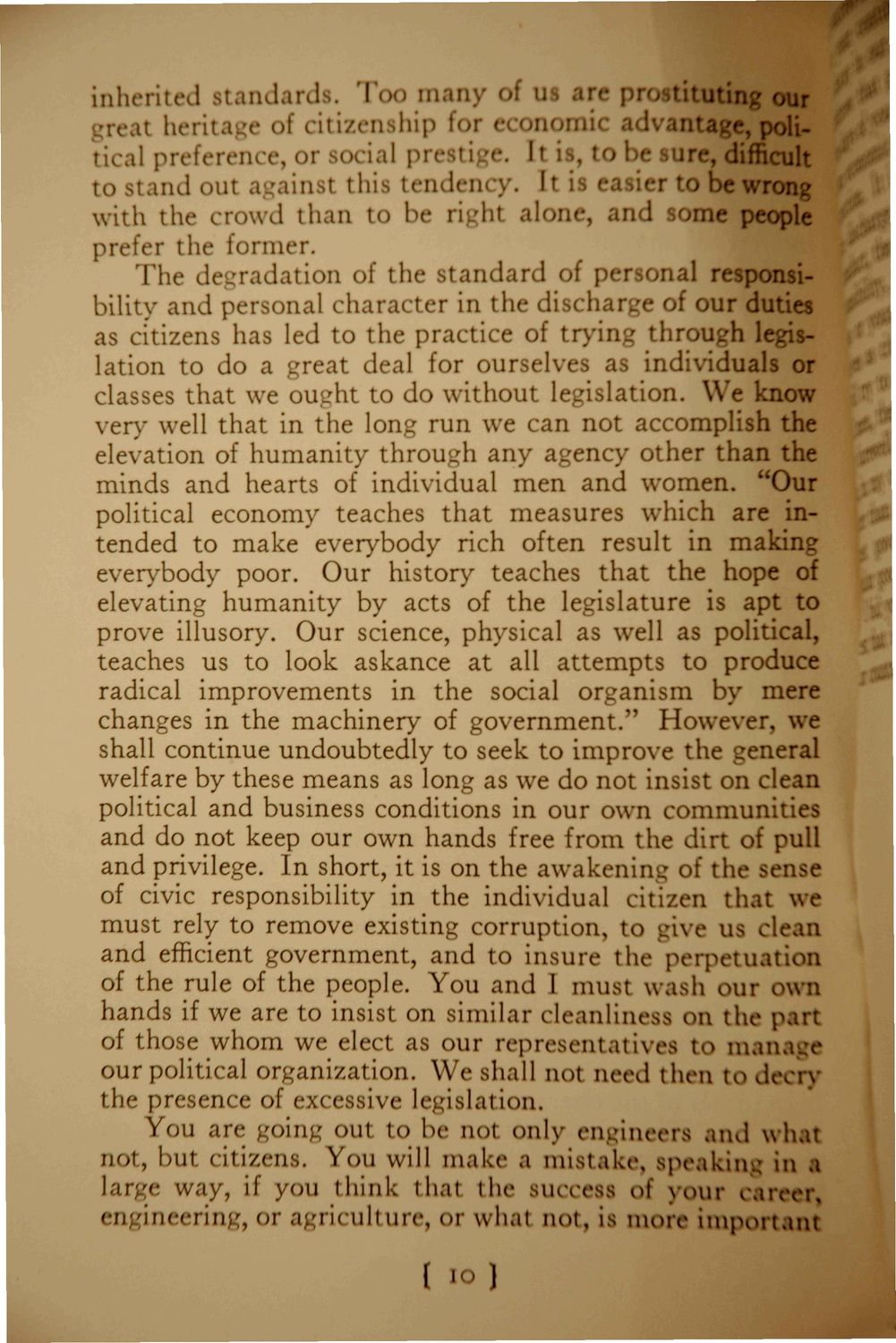Caption: Commencement - 1925
This is a reduced-resolution page image for fast online browsing.

EXTRACTED TEXT FROM PAGE:
inh rited tandards. I K> m of ui t e : i tin;: our it herita e of rin enshi r e onoi civ; jc, poliI pr« rei e, 01 i I i It is, to be sure, lifBcult to! indouta instthi endei [tise ertobewr with the crow 1 than to be ri alo . an : some people prefer tl: rmer. The d< radation of the rd of personal responsibility and personal character in the di trge of our duties is citizens has led to the practice of trying through legislation to do a i it d 1 for ourselves as indr duals or classes that we ht to do without legislation. We knov very well that in the long run we can not accomplish the elevation of humanity through any agency other than the minds and hearts of individual men and women. "Our political economy teaches that measures which are intended to make everybody rich often result in makin everybody poor. Our history teaches that the hope of elevating humanity by acts of the legislature is apt to prove illusory. Our science, physical as well as political teaches us to look askance at all attempts to produce radical improvements in the social organism by mere changes in the machinery of government.*' However, wi shall continue undoubtedly to seek to improve the general welfare by these means as long as we do not insist on clean political and business conditions in our own communitit and do not keep our own hands free from the dirt o: pull and privilege. In short, it is on the awakening of the sense of civic responsibility in the individual cit en that we must rely to remove existing corruption, to give U clean and efficient government, and to in lire the perpetuation of the rule of the people. You and 1 must wash our own hands if we are to insist on similar cl< mlines m the part of those whom we elect as our representatives to man.i our political organization. Weshallnot ne< 1 then t l < the pr ence of excessive legislation. YOU re oing '»ut to be not only en-incet and what not, but citizens. You will make a mistake al n in 1 ; way, if you think that the SUc< s ol your u en inerrin } or ai-ricull un or what not, is more imp it.uu t• • > )
|